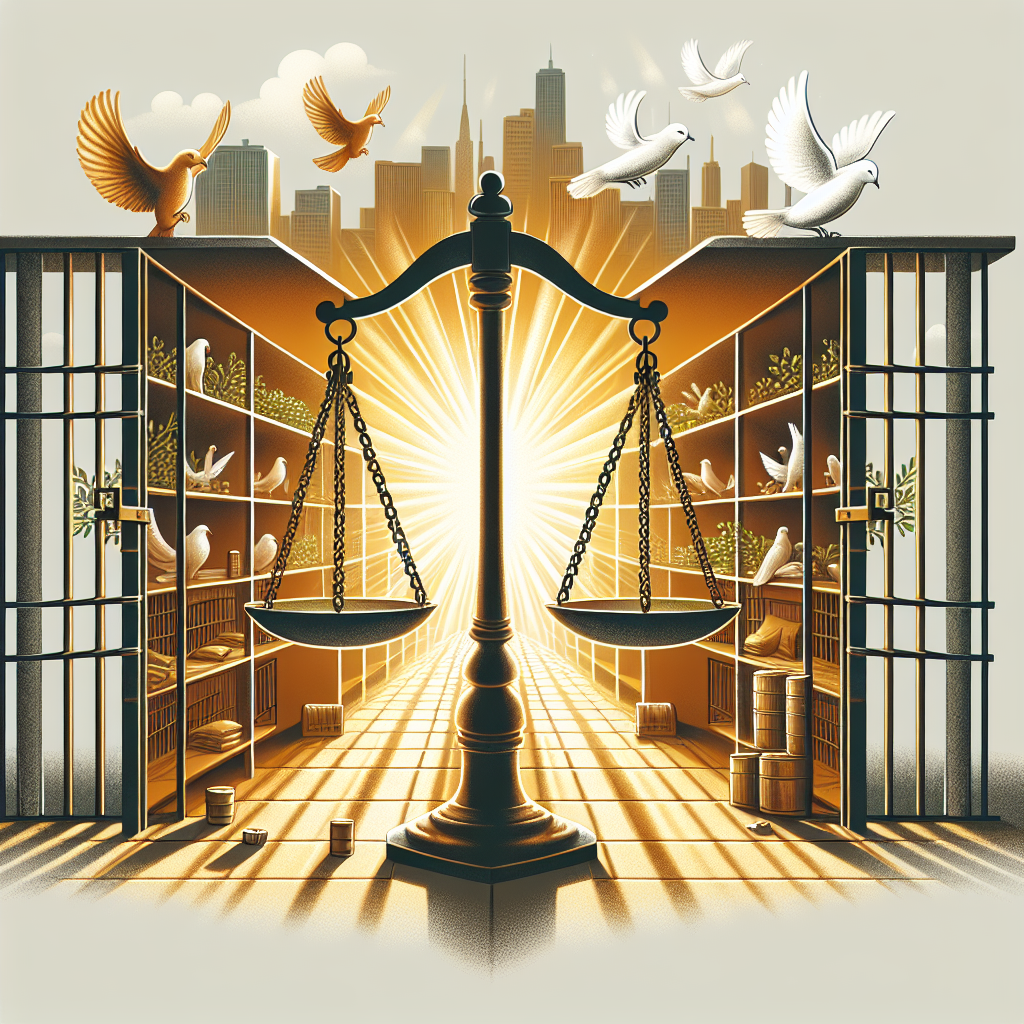Criminal Justice Reform: How Libertarian Policies Can Reduce Incarceration
The conversation around criminal justice reform is increasingly urgent in the U.S., as systemic issues, high incarceration rates, and social injustices become focal points for activists and policymakers alike. One approach that has gained traction in mitigating these challenges is the adoption of libertarian policies. These principles prioritize individual freedom, personal responsibility, and limited government intervention. In this article, we will explore how these concepts can effectively reduce incarceration rates and promote a more equitable justice system.
The Current Landscape of Incarceration in the U.S.
The United States holds the highest incarceration rate in the world, with over 2 million people behind bars. This staggering figure not only raises moral and ethical questions but also strains public resources. Understanding the factors contributing to this massive incarceration rate is crucial for developing effective reforms. Key issues include:
- Mandatory Minimum Sentences: Often enacted in response to the War on Drugs, mandatory minimum sentences have led to disproportionately harsh penalties for nonviolent offenses.
- Prison Overcrowding: Solutions are urgently needed to address overpopulated prisons, which often become breeding grounds for further criminal behavior rather than rehabilitation.
- Systemic Inequality: Racial and socio-economic disparities play a significant role in sentencing and incarceration practices, exacerbating the crisis.
Libertarian Principles: A Foundation for Reform
Libertarianism advocates for limited government, personal liberty, and free-market principles. These ideologies can provide practical solutions to the issues plaguing the current criminal justice system. Here are some key libertarian principles that could influence reform:
1. Decriminalization of Nonviolent Offenses
Decriminalizing nonviolent offenses, particularly drug-related crimes, is fundamental to reducing incarceration rates. By removing criminal penalties for behaviors that do not harm others, we can redirect resources away from punitive measures towards rehabilitation and prevention.
2. Overhauling Mandatory Minimum Sentences
Mandatory minimum sentencing laws disproportionately affect marginalized communities and contribute to over incarceration. Libertarian policy advocates argue for judicial discretion, allowing judges to impose fair and proportional sentences based on individual circumstances rather than rigid minimums.
3. Restorative Justice Practices
Restorative justice focuses on healing and integrating offenders back into society rather than solely punishing them. This approach promotes accountability and reconciliation, providing alternatives to traditional punitive methods and significantly reducing recidivism.
The Financial Benefits of Reform
Implementing libertarian policies in criminal justice reform not only addresses ethical concerns but also promises substantial financial savings. Here’s how:
1. Lowering Prison Costs
Incarceration is expensive. The U.S. spends billions annually on maintaining prisons. By decriminalizing nonviolent offenses and implementing alternative sentencing, states can save substantial amounts of taxpayer money, which can instead be invested in education, rehabilitation programs, and community services.
2. Economic Productivity
Incarceration often leads to lost economic productivity as individuals struggle to reintegrate into society post-release. By adopting policies that prevent unnecessary incarceration, we can foster a more productive workforce and reduce the burden on welfare programs.
Case Studies: Successful Libertarian Reforms
Several jurisdictions across the U.S. have begun implementing libertarian-inspired reforms with positive outcomes:
1. Colorado’s Drug Policy Reforms
Colorado has taken significant steps towards decriminalizing certain drug offenses and focusing on treatment rather than incarceration. The state has seen a reduction in prison populations and a rise in successful rehabilitation outcomes.
2. California’s Proposition 47
In 2014, California passed Proposition 47, which reclassified certain nonviolent crimes as misdemeanors. This measure significantly reduced the state’s prison population and has been lauded as a successful model for other states to consider.
The Role of Advocacy and Public Opinion
Changing criminal justice policies requires public support and advocacy. Libertarian organizations, along with a growing movement for criminal justice reform, are working to educate the public on the benefits of these policies. Engaging communities and fostering discussions around:
- The economic implications of incarceration
- The moral and ethical responsibilities of the justice system
- Alternative approaches to handling crime
can play an essential role in shifting public opinion toward adopting libertarian policies.
Conclusion: A Path Forward for Criminal Justice Reform
As the U.S. grapples with its deeply flawed criminal justice system, libertarian policies offer a viable path toward reducing incarceration. By addressing the root causes of crime, focusing on rehabilitation over punishment, and promoting individual freedoms, we can create a more just and equitable society. A commitment to reform is essential, and by embracing these principles, we can pave the way for a future where justice serves everyone—not just a select few.
For more information on criminal justice reform and libertarian principles, subscribe to our newsletter or join a local advocacy group to stay updated on the latest developments and opportunities for engagement in this crucial issue.
Share this content:












Post Comment